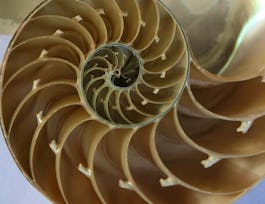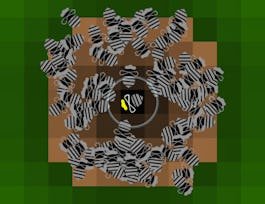This course continues your study of calculus by focusing on the applications of integration. The applications in this section have many common features. First, each is an example of a quantity that is computed by evaluating a definite integral. Second, the formula for that application is derived from Riemann sums.


Calculus through Data & Modelling: Integration Applications
This course is part of Integral Calculus through Data and Modeling Specialization
Taught in English
Some content may not be translated

Instructor: Joseph W. Cutrone, PhD
Top Instructor
Included with 
Course
(19 reviews)
Recommended experience
Details to know

Add to your LinkedIn profile
5 quizzes
Course
(19 reviews)
Recommended experience
See how employees at top companies are mastering in-demand skills

Build your subject-matter expertise
- Learn new concepts from industry experts
- Gain a foundational understanding of a subject or tool
- Develop job-relevant skills with hands-on projects
- Earn a shareable career certificate


Earn a career certificate
Add this credential to your LinkedIn profile, resume, or CV
Share it on social media and in your performance review

There are 4 modules in this course
In this module, we generalize the notion of the average value of a (finite) set of points. Did you ever wonder how we compute the average temperature during the day if infinitely many temperature readings are possible? Or how the average rainfall is calculated? The notions in this module will allow us to expand the idea of an average value to compute averages with (infinite) values over a continuous interval.
What's included
1 video1 reading1 quiz
What do we mean by the arc length of a curve? We might think of fitting a piece of string to the curve and then measuring the string against a ruler. But this is difficult to do when working with a complicated curve. In this module we develop the precise notion of the length and curvature of an arc of a curve in both the xy plane and in space.
What's included
3 videos1 reading1 quiz
In this module, we show how the ideas of tangent and normal vectors can be used in physics to study the motion of an object, including its velocity and acceleration, but now we focus on curves in three dimensional space. The techniques developed here then allow us to study the rates of change for more advanced functions.
What's included
1 video2 readings1 quiz
Finding the area between two curves is not just an interesting application of definite integrals from a geometric view, but when working with the appropriate functions, has applications in economics, business, and even medicine.
What's included
3 videos1 reading2 quizzes
Instructor

Offered by
Recommended if you're interested in Math and Logic

Johns Hopkins University

Coursera Project Network

Coursera Project Network

Coursera Project Network
Why people choose Coursera for their career





Open new doors with Coursera Plus
Unlimited access to 7,000+ world-class courses, hands-on projects, and job-ready certificate programs - all included in your subscription
Advance your career with an online degree
Earn a degree from world-class universities - 100% online
Join over 3,400 global companies that choose Coursera for Business
Upskill your employees to excel in the digital economy
Frequently asked questions
Access to lectures and assignments depends on your type of enrollment. If you take a course in audit mode, you will be able to see most course materials for free. To access graded assignments and to earn a Certificate, you will need to purchase the Certificate experience, during or after your audit. If you don't see the audit option:
The course may not offer an audit option. You can try a Free Trial instead, or apply for Financial Aid.
The course may offer 'Full Course, No Certificate' instead. This option lets you see all course materials, submit required assessments, and get a final grade. This also means that you will not be able to purchase a Certificate experience.
When you enroll in the course, you get access to all of the courses in the Specialization, and you earn a certificate when you complete the work. Your electronic Certificate will be added to your Accomplishments page - from there, you can print your Certificate or add it to your LinkedIn profile. If you only want to read and view the course content, you can audit the course for free.
If you subscribed, you get a 7-day free trial during which you can cancel at no penalty. After that, we don’t give refunds, but you can cancel your subscription at any time. See our full refund policy.

